Can Pet Rabbits Eat Iceberg Lettuce? At PETS.EDU.VN, we understand the importance of providing your bunny with a safe and nutritious diet; iceberg lettuce, while seemingly harmless, is not the best choice. Discover which lettuces are safe and beneficial for your rabbit’s health, ensuring a balanced and happy life for your furry friend. We will explore healthy alternatives, diet tips, and expert advice for optimal rabbit nutrition, including leafy greens and proper hydration.
1. Understanding the Nutritional Needs of Rabbits
Rabbits require a diet rich in fiber, vitamins, and minerals to maintain optimal health. A balanced diet primarily consists of high-quality hay, supplemented with fresh vegetables and a small portion of pellets. Understanding these needs is crucial for any rabbit owner aiming to provide the best possible care.
1.1 The Importance of Fiber in a Rabbit’s Diet
Fiber is the cornerstone of a rabbit’s digestive system. It aids in proper gut motility, preventing issues like GI stasis, a potentially life-threatening condition. Hay, such as timothy, orchard, or meadow hay, should make up about 80% of a rabbit’s diet.
- Hay: Essential for digestive health and dental wear.
- Benefits: Prevents GI stasis, promotes healthy teeth, and provides mental stimulation.
1.2 Essential Vitamins and Minerals for Rabbit Health
Vitamins and minerals are vital for various bodily functions, including immune support, bone health, and energy production. While hay and pellets provide some of these nutrients, fresh vegetables offer a natural and bioavailable source.
- Vitamin A: Supports vision, immune function, and skin health.
- Vitamin K: Important for blood clotting and bone metabolism.
- Calcium: Crucial for strong bones and teeth.
1.3 Hydration: Keeping Your Rabbit Properly Hydrated
Proper hydration is often overlooked but is critical for a rabbit’s health. Fresh vegetables, including lettuce, can contribute to their daily water intake, especially for rabbits that may not drink enough from their water bowl or bottle.
- Water Bowl: Always provide fresh, clean water in a bowl, as it’s more natural for rabbits to drink from a bowl than a bottle.
- Vegetables: Supplement water intake with hydrating vegetables like romaine lettuce and celery.
2. Lettuce and Rabbits: What You Need to Know
Lettuce can be a refreshing and nutritious addition to a rabbit’s diet, but not all types of lettuce are created equal. It’s essential to choose varieties that offer nutritional benefits without posing health risks.
2.1 The Good: Safe and Nutritious Lettuce Varieties
Several types of lettuce are safe and beneficial for rabbits, providing essential vitamins, minerals, and hydration.
| Lettuce Type | Benefits | Serving Size |
|---|---|---|
| Romaine Lettuce | Rich in vitamins A and K, high in fiber, and supports dental health. | A few fresh leaves daily, alongside hay and pellets |
| Butterhead Lettuce | Soft, tender leaves, low in calories, and rich in nutrients. | Small amounts as part of a mixed green offering |
| Red and Green Leaf Lettuce | High in vitamins and minerals, low in oxalates. | Serve with other leafy greens for variety |
| Lamb’s Lettuce | Mild and nutritious, perfect for rabbits who enjoy softer greens. | Occasional small handfuls |
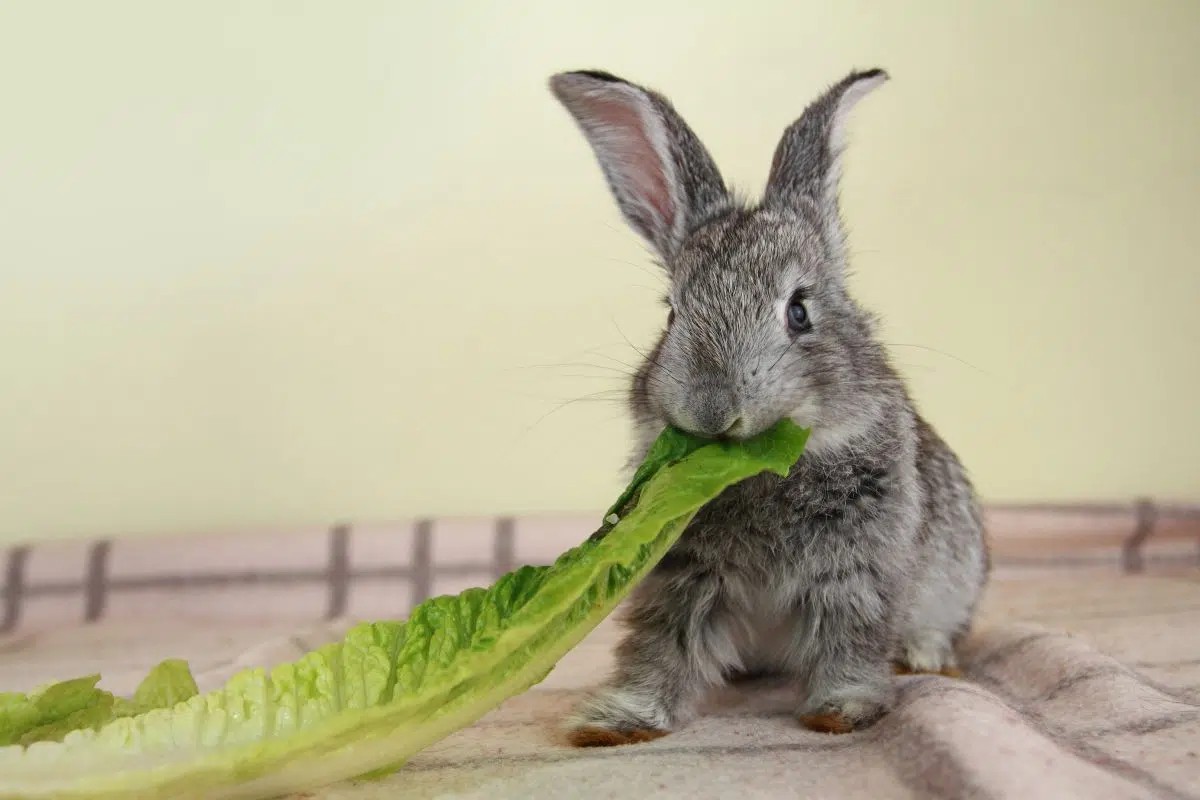
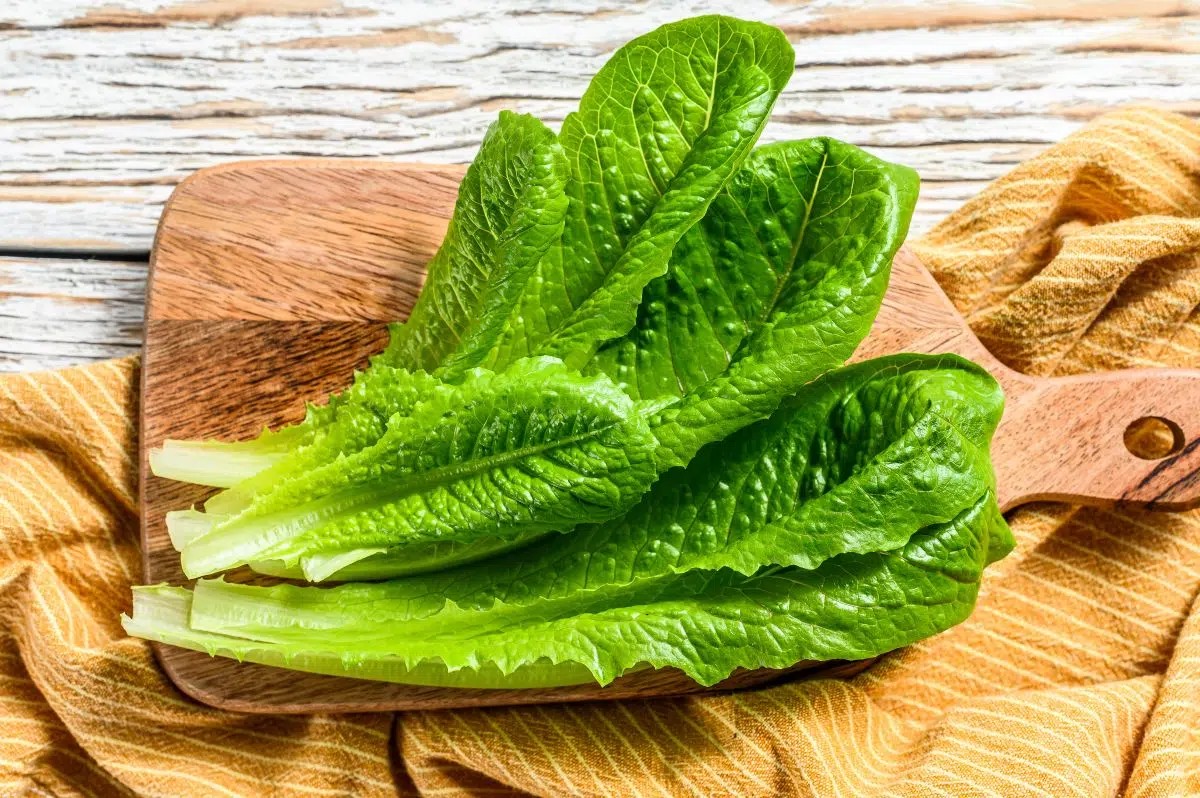
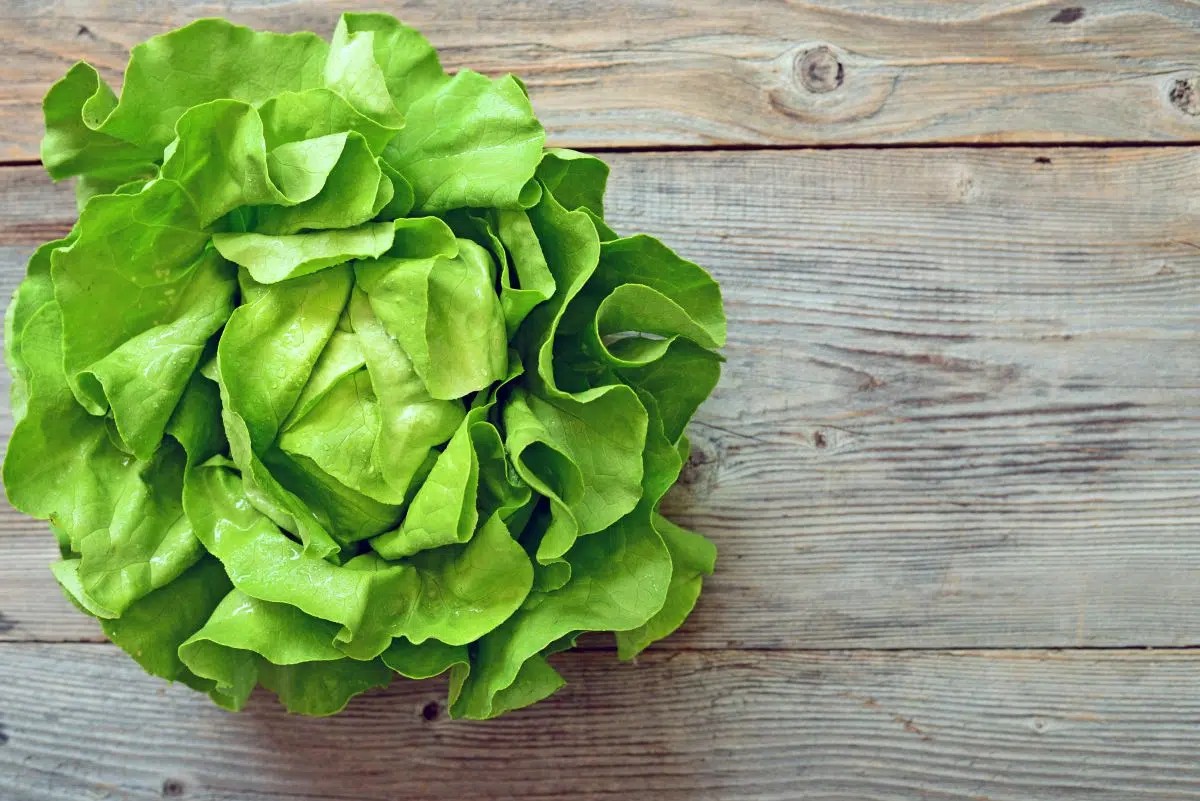
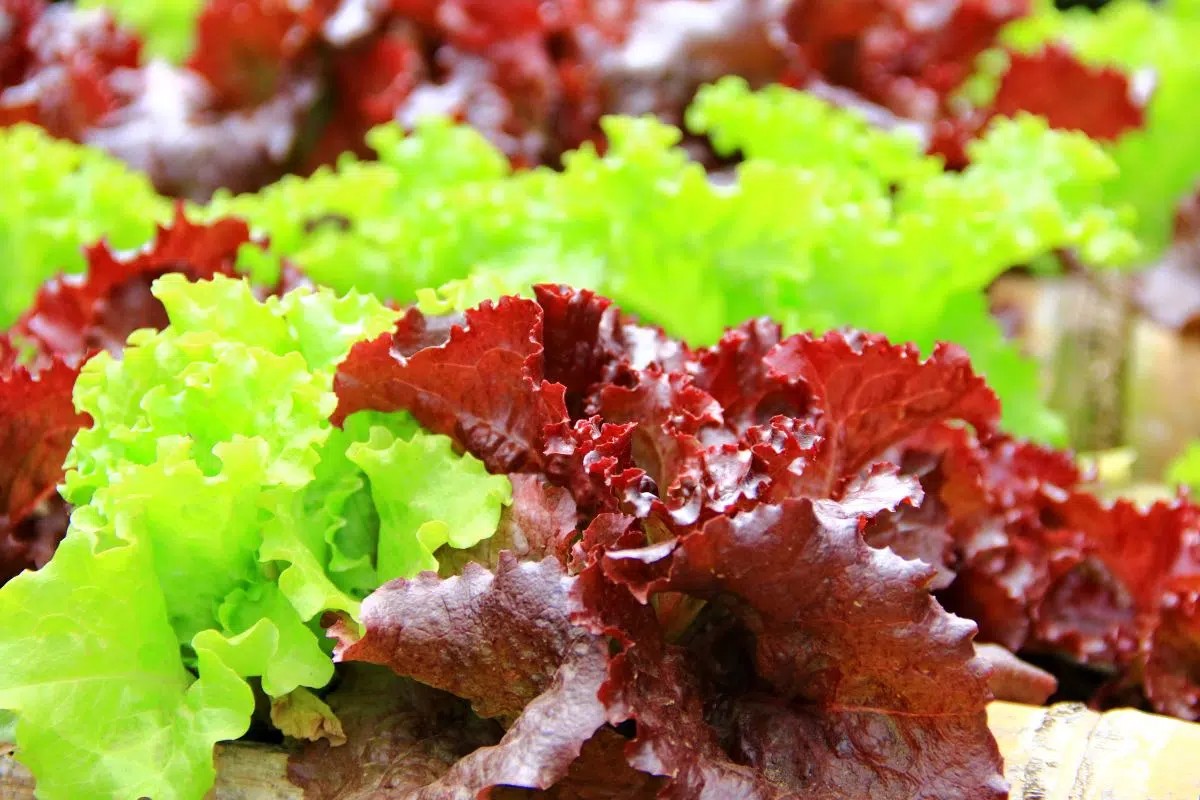
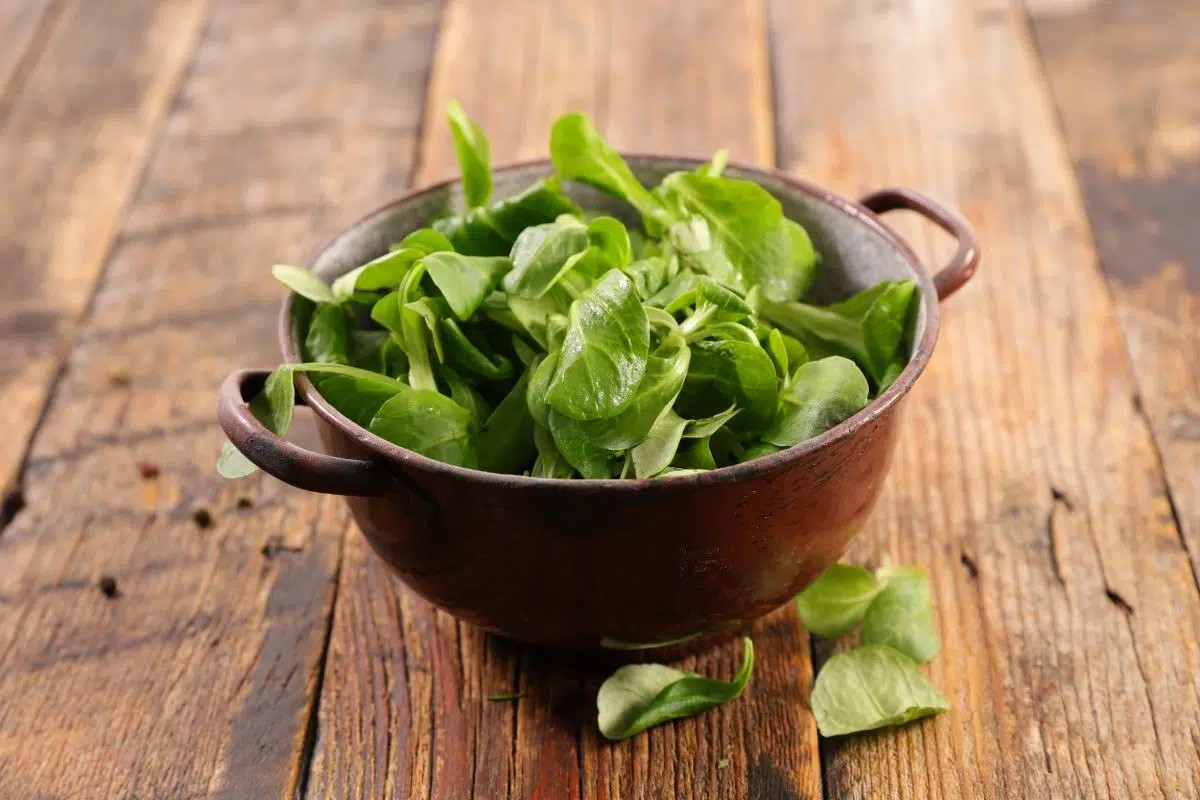
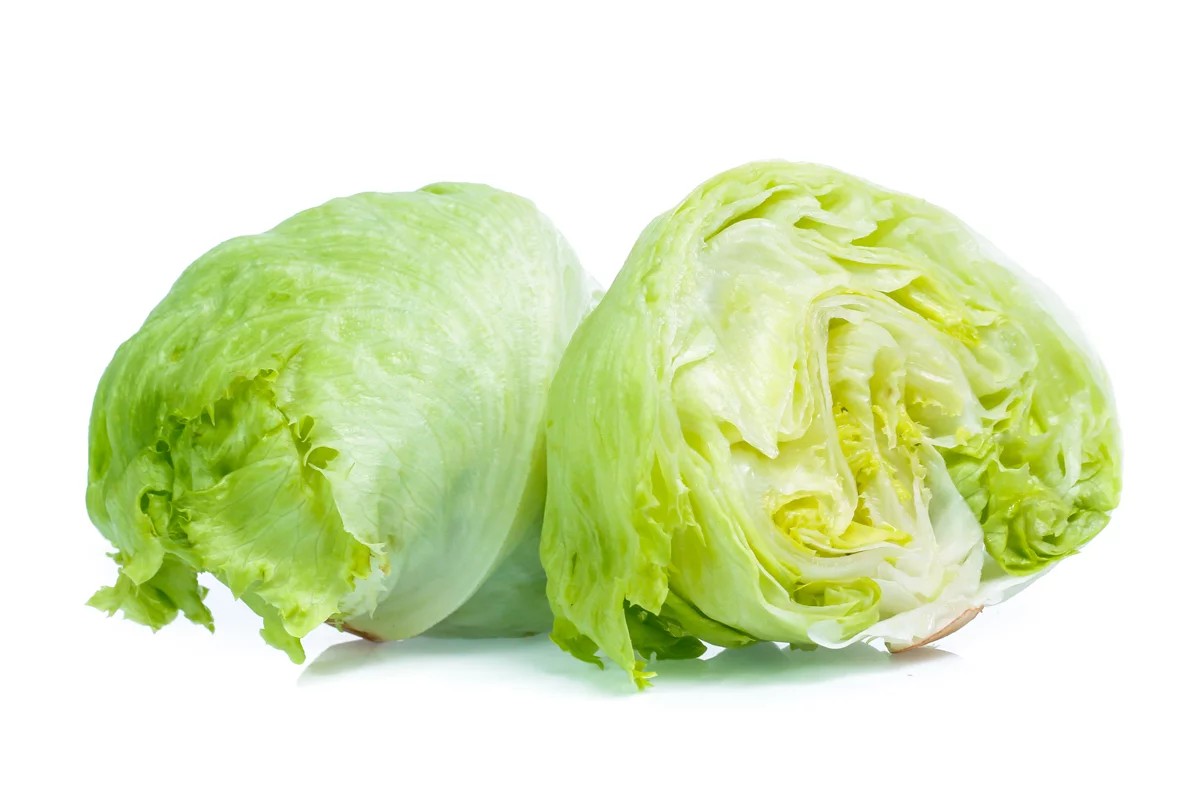
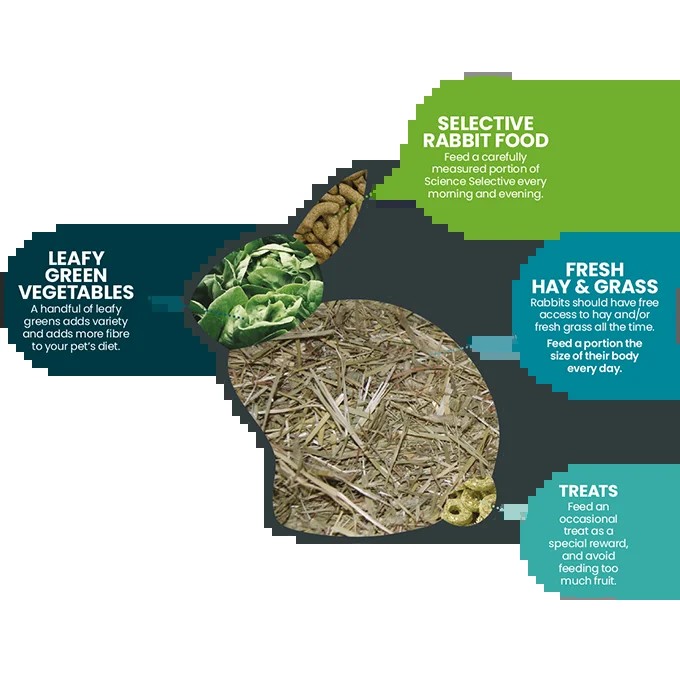
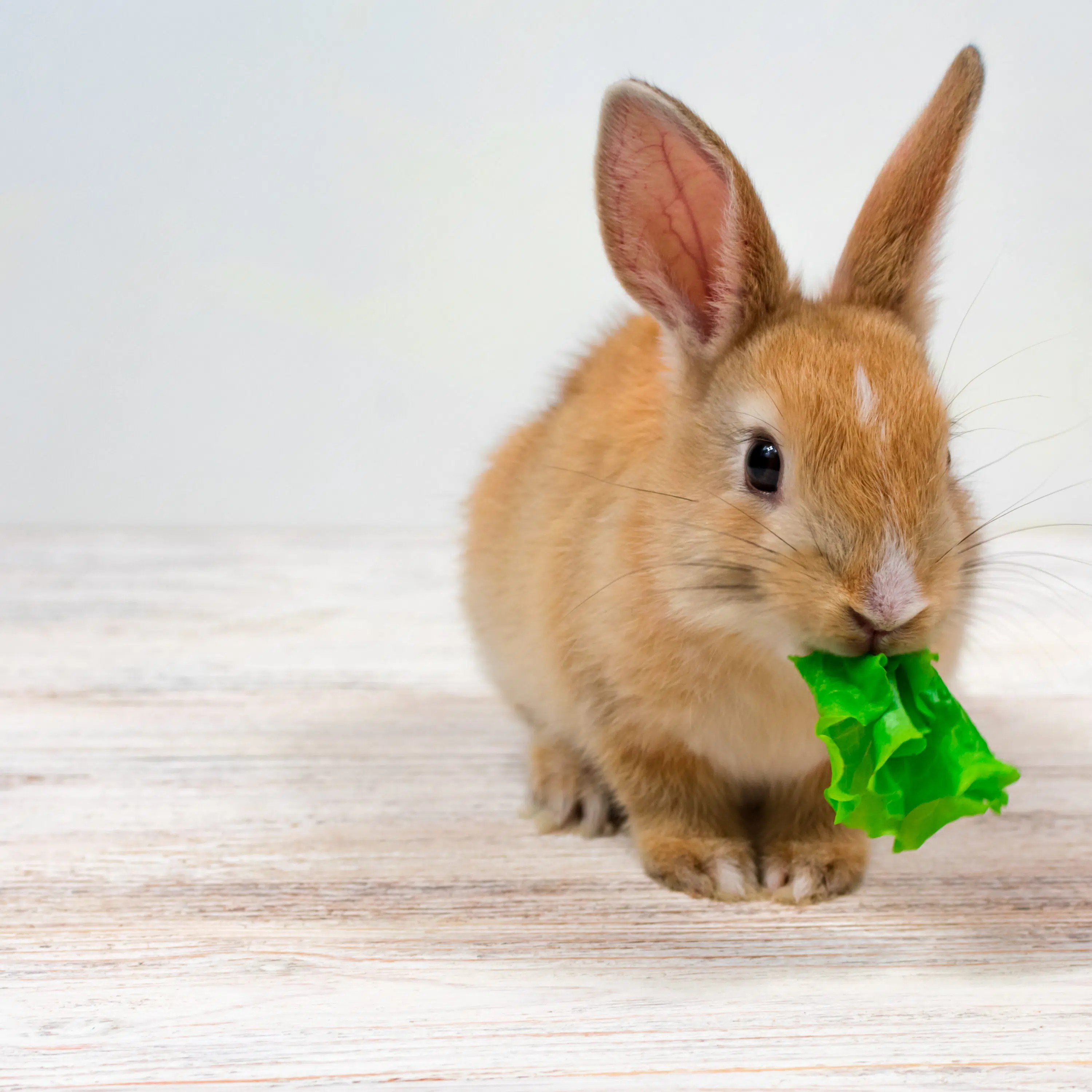
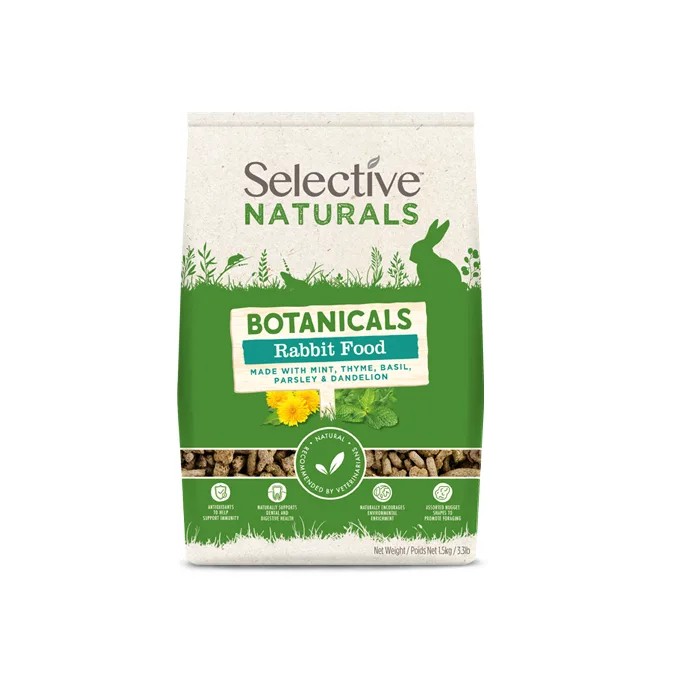
2.2 The Bad: Why Iceberg Lettuce is Not Recommended
Iceberg lettuce is often considered a poor choice for rabbits due to its low nutritional value and potential health risks.
- Low Nutritional Value: Primarily water with minimal vitamins and minerals.
- Lactucarium Content: Contains lactucarium, which can cause diarrhea and lethargy in large amounts.
2.3 The Ugly: Other Risky Foods to Avoid
In addition to iceberg lettuce, there are other foods that rabbit owners should avoid to ensure their pets’ health and safety.
- Foods High in Sugar: Fruits like bananas and grapes should be given sparingly as treats due to their high sugar content.
- Starchy Vegetables: Potatoes and corn can disrupt the gut’s bacterial balance, leading to digestive issues.
- Toxic Plants: Certain plants, such as lilies and rhubarb, are toxic to rabbits and should never be offered.
3. Diving Deeper: The Dangers of Iceberg Lettuce
Iceberg lettuce poses several risks to rabbits, primarily due to its composition and potential effects on their digestive system. Understanding these risks can help rabbit owners make informed decisions about their pets’ diets.
3.1 Minimal Nutritional Benefits
Iceberg lettuce is mostly water, with very little nutritional value. This means it doesn’t contribute significantly to a rabbit’s vitamin or mineral intake. Relying on iceberg lettuce can lead to nutritional deficiencies over time.
- Vitamins and Minerals: Lacks essential vitamins and minerals necessary for rabbit health.
- Fiber Content: Provides minimal fiber, which is crucial for digestive health.
3.2 The Lactucarium Factor
Iceberg lettuce contains a compound called lactucarium, which can have sedative effects and cause digestive upset in rabbits. While the amount of lactucarium in iceberg lettuce is relatively low, it can still be harmful if consumed in large quantities.
- Diarrhea: Can cause loose stools and diarrhea, leading to dehydration.
- Lethargy: May cause rabbits to become lethargic and less active.
3.3 Potential for Digestive Upset
The high water content and lack of fiber in iceberg lettuce can disrupt a rabbit’s digestive system, leading to issues like bloat and diarrhea. A balanced diet with adequate fiber is essential for maintaining healthy gut motility.
- Bloat: Can cause gas buildup in the digestive tract, leading to discomfort and pain.
- Diarrhea: Disrupts the natural balance of gut bacteria, resulting in diarrhea.
4. Safe Lettuce Varieties: A Detailed Look
Choosing the right types of lettuce can provide your rabbit with essential nutrients and hydration without the risks associated with iceberg lettuce.
4.1 Romaine Lettuce: The Gold Standard
Romaine lettuce is an excellent choice for rabbits due to its high nutrient content and fiber. It’s rich in vitamins A and K, as well as folate, which are all beneficial for rabbit health.
- Vitamin A: Supports vision, immune function, and skin health.
- Vitamin K: Important for blood clotting and bone metabolism.
- Folate: Essential for cell growth and development.
4.2 Butterhead Lettuce: Soft and Nutritious
Butterhead lettuce, also known as Boston or Bibb lettuce, is another safe and nutritious option for rabbits. Its soft, tender leaves are easy to digest, and it’s low in calories while still providing essential nutrients.
- Easy to Digest: Gentle on the digestive system, making it suitable for rabbits with sensitive stomachs.
- Nutrient-Rich: Contains vitamins and minerals, contributing to overall health.
4.3 Red and Green Leaf Lettuce: Variety is Key
Red and green leaf lettuce are both safe and nutrient-packed options for rabbits. They’re high in vitamins and minerals while being low in oxalates, which can cause problems in excess.
- Vitamins and Minerals: Provides a range of essential nutrients.
- Low in Oxalates: Reduces the risk of urinary tract issues.
4.4 Lamb’s Lettuce: A Gentle Option
Lamb’s lettuce, also known as corn salad, is a mild and nutritious option for rabbits who enjoy softer greens. It’s a great source of hydration and vitamins.
- Mild Flavor: Appealing to rabbits with sensitive palates.
- Hydration: Contributes to daily water intake.
5. Creating a Balanced Diet for Your Rabbit
A balanced diet is crucial for maintaining your rabbit’s health and well-being. This includes providing the right types of lettuce in moderation, along with other essential components.
5.1 The 80/15/5 Rule
A general guideline for a rabbit’s diet is the 80/15/5 rule:
- 80% Hay: High-quality hay should make up the majority of their diet.
- 15% Fresh Vegetables: Include a variety of safe leafy greens and vegetables.
- 5% Pellets: A small portion of species-specific rabbit pellets to supplement nutrients.
5.2 Portion Sizes and Frequency
The amount of lettuce you feed your rabbit should be based on their size, age, and overall health. A general guideline is to offer about 1 cup of fresh vegetables per 2 pounds of body weight per day.
- Introduce Gradually: Start with small amounts and gradually increase to avoid digestive upset.
- Monitor Stool Quality: Check for any changes in stool consistency, which can indicate digestive issues.
5.3 The Importance of Hay
Hay is the most critical component of a rabbit’s diet. It provides essential fiber, supports dental health, and prevents digestive problems.
- Types of Hay: Timothy, orchard, and meadow hay are all excellent choices.
- Free Access: Rabbits should have unlimited access to fresh hay at all times.
6. Expert Tips for Feeding Lettuce to Rabbits
Following expert tips can help you safely incorporate lettuce into your rabbit’s diet, ensuring they receive the maximum benefits without any risks.
6.1 Introduce New Greens Slowly
When introducing new types of lettuce or vegetables, do so gradually. This allows your rabbit’s digestive system to adjust and reduces the risk of digestive upset.
- Small Portions: Start with a small amount (e.g., one leaf) and observe your rabbit for any adverse reactions.
- Monitor Stool: Check for changes in stool consistency and behavior.
6.2 Wash Lettuce Thoroughly
Always wash lettuce thoroughly to remove any pesticides, dirt, or contaminants. This is especially important for non-organic produce.
- Rinse Under Water: Rinse each leaf under running water.
- Use a Vegetable Brush: For tougher vegetables, use a vegetable brush to remove any residue.
6.3 Offer a Variety of Leafy Greens
Providing a variety of leafy greens can ensure your rabbit receives a wide range of nutrients. Rotate different types of lettuce and vegetables to keep their diet interesting and balanced.
- Mix and Match: Combine different types of lettuce and vegetables in their daily servings.
- Nutrient Diversity: Ensures a balanced intake of vitamins and minerals.
6.4 Consult Your Vet
If you have any concerns about your rabbit’s diet or health, consult your veterinarian. They can provide personalized recommendations based on your rabbit’s specific needs.
- Health Conditions: If your rabbit has any underlying health conditions, such as kidney disease or dental issues, your vet can advise on the most appropriate diet.
- Personalized Advice: Tailored recommendations based on your rabbit’s individual needs.
7. Understanding Rabbit Digestion
To properly care for your rabbit, it’s important to understand the basics of their digestive system. This knowledge will help you make informed decisions about their diet and recognize potential health issues early on.
7.1 The Role of the Cecum
Rabbits have a unique digestive system that includes a large pouch called the cecum. The cecum contains beneficial bacteria that help break down fiber and produce essential nutrients.
- Fiber Digestion: Bacteria in the cecum ferment fiber, producing volatile fatty acids that the rabbit uses for energy.
- Nutrient Production: The cecum also produces vitamins B and K, which are essential for rabbit health.
7.2 Cecotropes: The Rabbit’s Special Treat
Rabbits produce two types of droppings: hard, dry fecal pellets and soft, clustered cecotropes. Cecotropes, also known as “night droppings,” are nutrient-rich and are consumed by the rabbit directly from the anus.
- Nutrient Recycling: Cecotropes contain essential vitamins, minerals, and beneficial bacteria that the rabbit needs to stay healthy.
- Healthy Digestion: Eating cecotropes is a normal and necessary part of a rabbit’s digestive process.
7.3 Common Digestive Issues
Several digestive issues can affect rabbits, including GI stasis, bloat, and diarrhea. These conditions can be life-threatening and require prompt veterinary attention.
- GI Stasis: A condition where the digestive system slows down or stops, often due to a lack of fiber.
- Bloat: Gas buildup in the digestive tract, causing discomfort and pain.
- Diarrhea: Loose stools caused by an imbalance in gut bacteria or an inappropriate diet.
8. Alternatives to Lettuce: Other Safe Vegetables
While lettuce can be a part of a rabbit’s diet, it’s important to include other safe vegetables to provide a variety of nutrients.
8.1 Leafy Greens
Other leafy greens like kale, spinach, and parsley can be offered in moderation. However, these should be rotated with other vegetables to avoid overconsumption of oxalates, which can lead to urinary issues.
- Kale: High in vitamins A and C, but should be given in small amounts due to its high calcium content.
- Spinach: Rich in iron and vitamin K, but also high in oxalates.
- Parsley: A good source of vitamins A and C, but should be given in moderation due to its strong flavor.
8.2 Root Vegetables
Root vegetables like carrots and beets can be offered as treats due to their high sugar content. The leafy green tops of these vegetables are also safe and nutritious for rabbits.
- Carrots: Offer small pieces as treats, as they are high in sugar.
- Beets: Both the root and the greens are safe, but offer in moderation.
8.3 Other Vegetables
Other safe vegetables for rabbits include bell peppers, broccoli, and celery. These should be offered in small amounts as part of a balanced diet.
- Bell Peppers: A good source of vitamin C.
- Broccoli: Offer the leaves and stems in small amounts.
- Celery: Provides hydration and fiber.
9. Recognizing Signs of Digestive Issues
Being able to recognize signs of digestive issues in your rabbit is crucial for early intervention and treatment.
9.1 Changes in Appetite
A sudden decrease or loss of appetite can be a sign of digestive problems. Rabbits should be eating regularly throughout the day.
- Reduced Hay Consumption: A significant decrease in hay intake is a red flag.
- Refusal to Eat: If your rabbit refuses to eat, seek veterinary attention immediately.
9.2 Changes in Droppings
Changes in the size, shape, or consistency of droppings can indicate digestive issues.
- Small Droppings: Small, dry droppings can be a sign of dehydration or lack of fiber.
- No Droppings: Absence of droppings for 12-24 hours is a serious concern.
9.3 Lethargy and Weakness
Lethargy and weakness can be signs of pain, dehydration, or other underlying health issues.
- Decreased Activity: If your rabbit is less active than usual, it could be a sign of illness.
- Hiding: Rabbits often hide when they are not feeling well.
9.4 Bloating and Abdominal Pain
Bloating and abdominal pain can indicate gas buildup in the digestive tract.
- Distended Abdomen: A swollen abdomen can be a sign of bloat.
- Teeth Grinding: Rabbits often grind their teeth when they are in pain.
10. Frequently Asked Questions (FAQs) About Lettuce and Rabbits
Here are some frequently asked questions about feeding lettuce to rabbits:
10.1 Can baby rabbits eat lettuce?
It’s best to wait until baby rabbits are at least 12 weeks old before introducing lettuce and other fresh vegetables. Their digestive systems are still developing, and introducing new foods too early can cause digestive upset.
10.2 How much lettuce can I give my rabbit each day?
A general guideline is to offer about 1 cup of fresh vegetables per 2 pounds of body weight per day. Adjust the amount based on your rabbit’s size, age, and overall health.
10.3 What should I do if my rabbit has diarrhea after eating lettuce?
Stop feeding lettuce immediately and monitor your rabbit closely. Provide plenty of fresh hay and water, and consult your veterinarian if the diarrhea persists for more than 24 hours or if your rabbit shows other signs of illness.
10.4 Can rabbits eat the core of lettuce?
The core of lettuce is generally safe for rabbits, but it’s best to offer it in moderation. It’s less nutritious than the leaves and can be harder to digest.
10.5 Is organic lettuce better for rabbits?
Organic lettuce is a great option because it reduces the risk of pesticide exposure. Whether organic or not, always wash lettuce thoroughly before giving it to your rabbit.
10.6 Can rabbits eat all types of green vegetables?
Not all green vegetables are safe for rabbits. Some, like iceberg lettuce, are low in nutrients and can cause digestive upset. Others, like certain types of beans, can be toxic. Always research before introducing new vegetables into your rabbit’s diet.
10.7 What are the best treats for rabbits?
Healthy treats for rabbits include small pieces of fruit (like apple or banana), herbs (like cilantro or basil), and the occasional carrot. Treats should be given in moderation to avoid weight gain and digestive issues.
10.8 How can I encourage my rabbit to eat more hay?
Make sure hay is always available and fresh. Offer different types of hay to see which your rabbit prefers. You can also try stuffing hay into toys to make it more engaging.
10.9 Can rabbits eat frozen lettuce?
No, frozen lettuce is not recommended for rabbits. Freezing changes the texture and can make it difficult to digest. Always offer fresh, washed lettuce.
10.10 What should I do if my rabbit refuses to eat vegetables?
Try offering different types of vegetables to see which your rabbit prefers. You can also try mixing vegetables with hay or pellets to make them more appealing. If your rabbit continues to refuse vegetables, consult your veterinarian to rule out any underlying health issues.
Conclusion: Prioritizing Your Rabbit’s Health
While can pet rabbits eat iceberg lettuce, it is not a recommended addition to their diet. Safe alternatives, such as romaine, butterhead, and leaf lettuces, offer far greater nutritional value and pose less risk to your bunny’s digestive health. Remember, a balanced diet, consisting primarily of high-quality hay, supplemented with fresh vegetables and a small portion of pellets, is the key to a happy and healthy rabbit. At PETS.EDU.VN, we are dedicated to providing you with the information and resources you need to ensure the best possible care for your beloved pets.
For further information and personalized advice, do not hesitate to contact us at 789 Paw Lane, Petville, CA 91234, United States, Whatsapp: +1 555-987-6543, or visit our website pets.edu.vn. Our team of experts is here to assist you with all your pet care needs. Remember to explore our website for more expert rabbit care tips and nutritional advice.